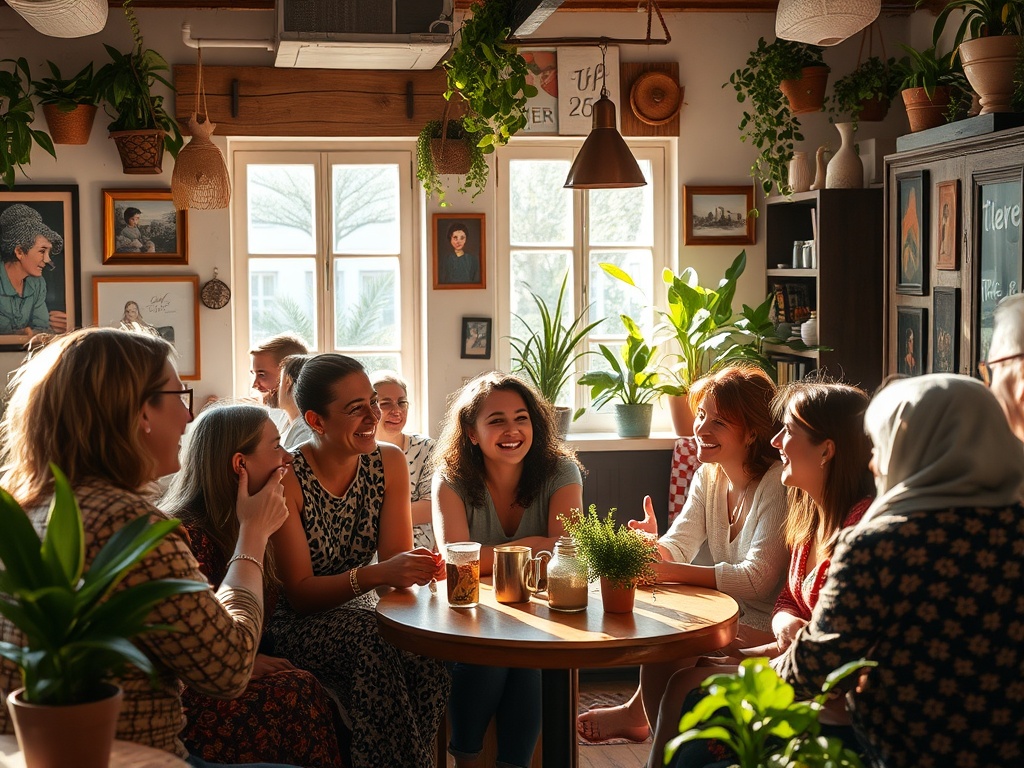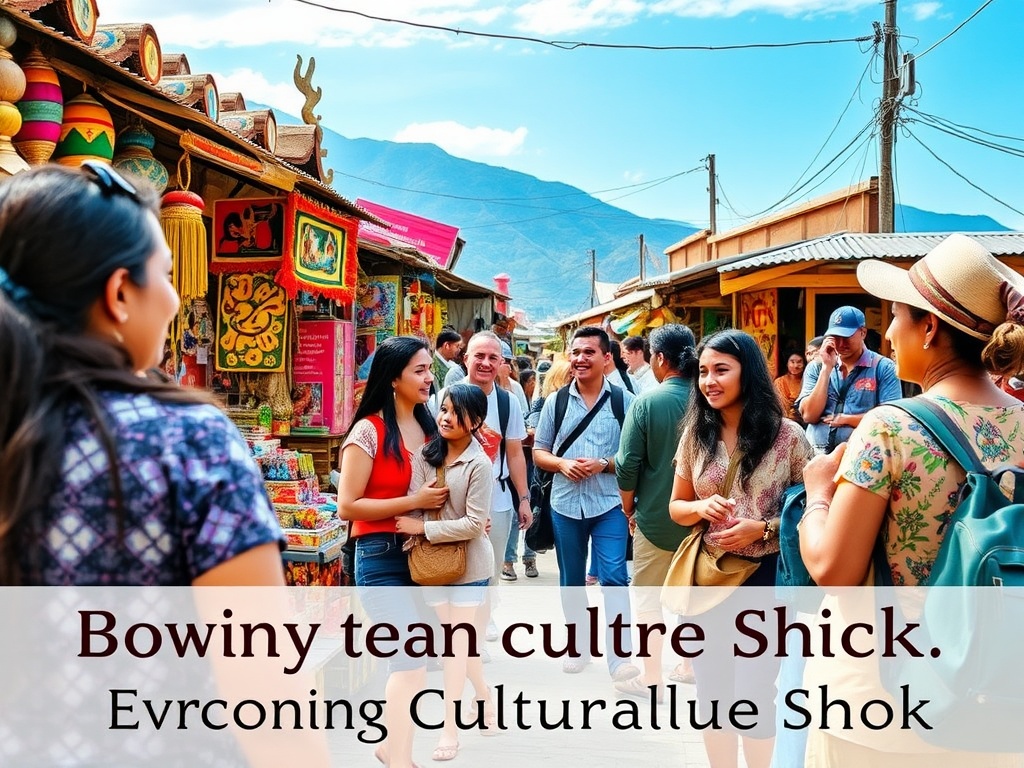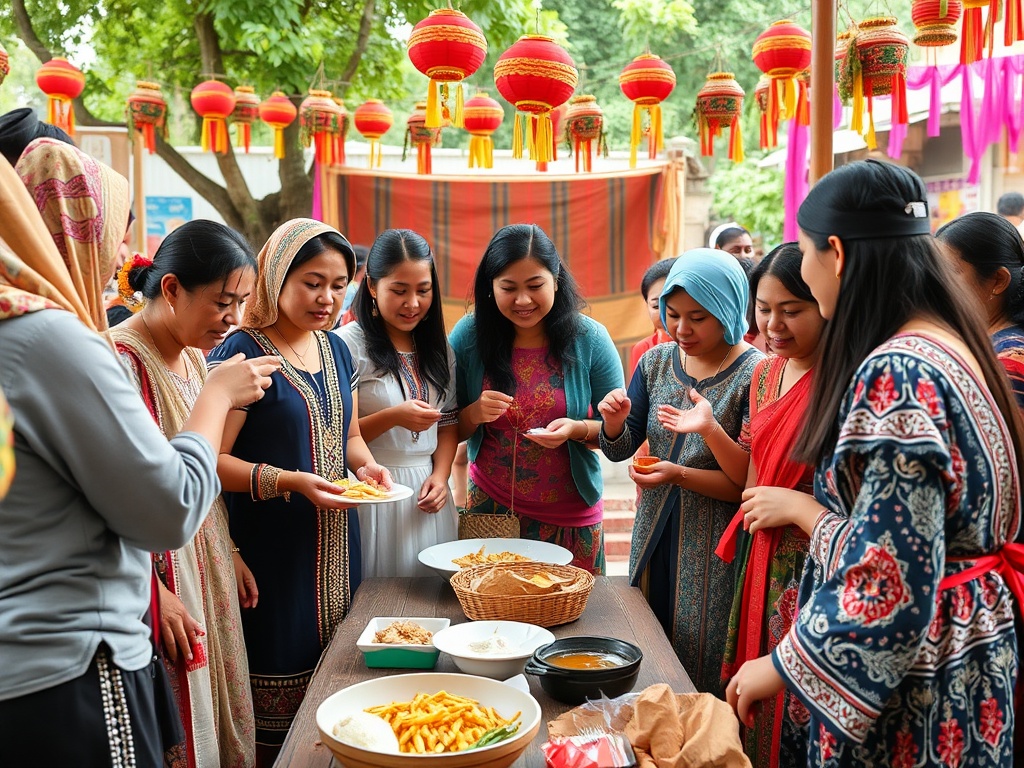Building Bridges: How to Connect with Local Communities
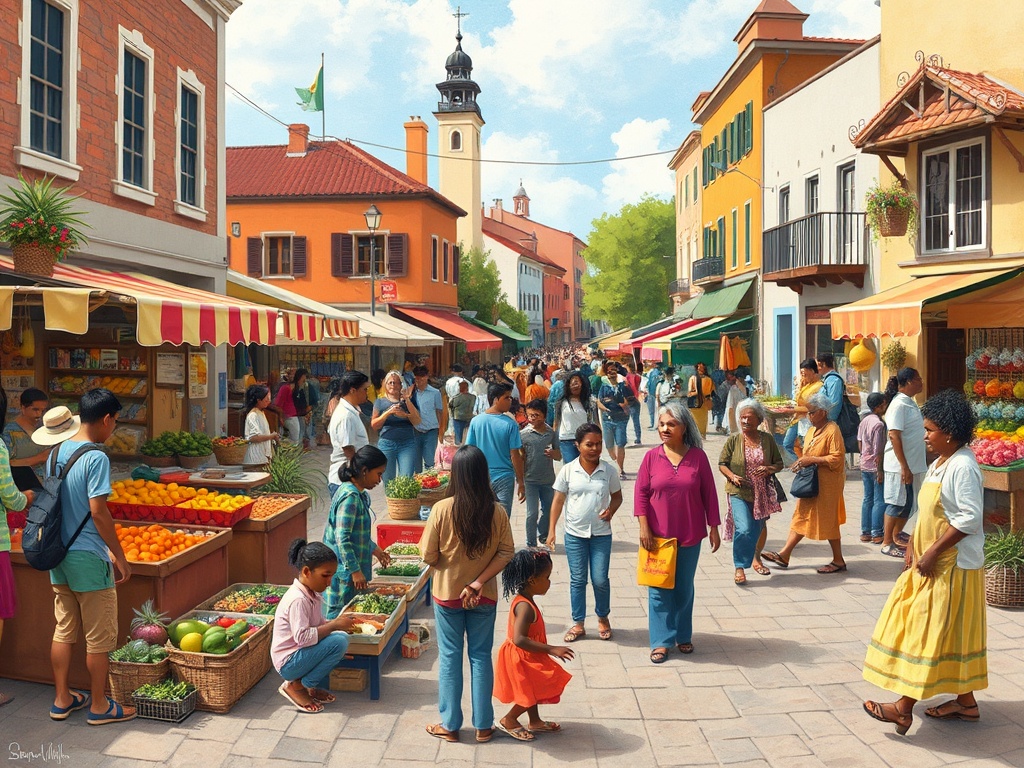
When moving abroad, the feeling of isolation can be overwhelming. Building connections with local communities is essential not only for your mental well-being but also for immersing yourself in the culture. Understanding the value of community can help you navigate your new environment and create a support network that makes you feel at home.
Participating in local activities is one of the most effective ways to connect with others. Whether it’s joining a sports club, a book club, or volunteering for community service, these activities provide opportunities to meet new people and share experiences. Moreover, engaging in local traditions and festivities will deepen your understanding of the culture.
- Sign up for local classes (cooking, art, language)
- Attend community events (fairs, festivals, markets)
- Join social media groups focused on local interests
- Participate in outdoor activities (hiking, sports)
- Volunteer at local charities or organizations
Every culture has its own set of social norms and practices. Being aware of these cultural differences can enhance your interactions and help you avoid misunderstandings. Approach conversations with an open mind and a willingness to learn. Here’s a simple comparison of common cultural cues in different regions:
| Cultural Aspect | Western Cultures | Eastern Cultures |
|---|---|---|
| Personal Space | Generally larger personal space | Closer physical proximity is common |
| Communication Style | Direct and explicit | Indirect and contextual |
| Conflict Resolution | Open discussions encouraged | Avoidance of confrontation preferred |
By respecting these differences, you can foster more meaningful relationships with locals and feel more integrated into the community.
Embracing the Culture: Finding Your Place in a New Environment
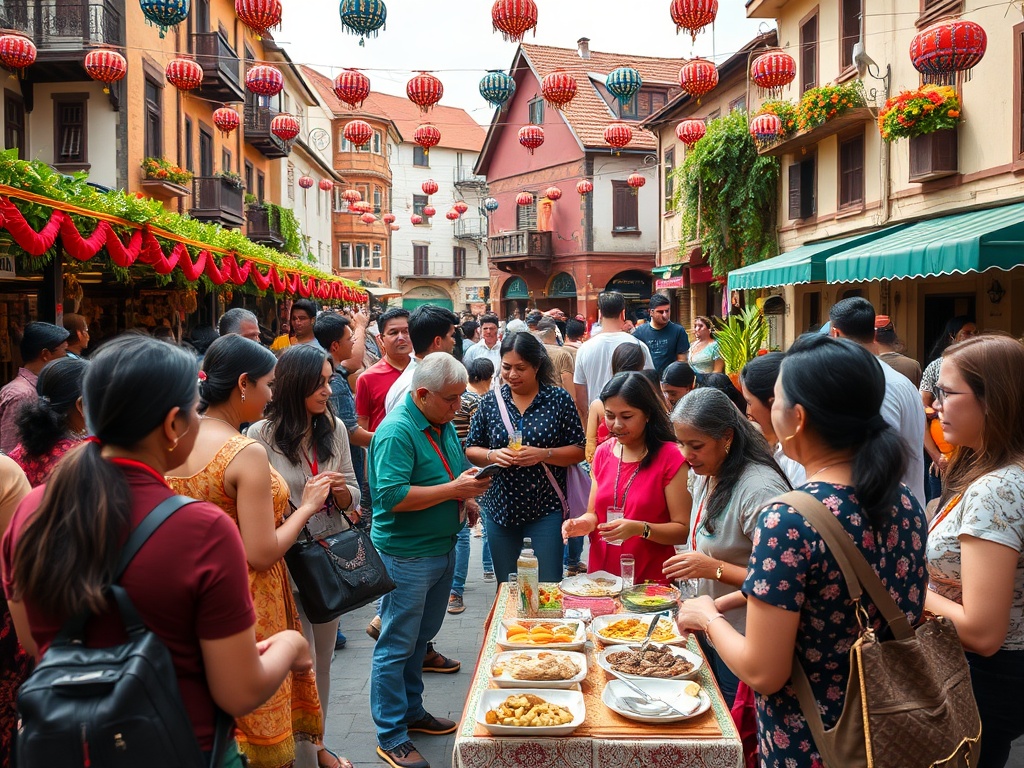
As you settle into your new surroundings, embracing the local culture can significantly enhance your experience abroad. Understanding the cultural nuances not only enriches your everyday life but also helps you forge deeper connections with those around you. Taking the initiative to learn about these aspects can transform the way you perceive and interact with your new environment.
One of the most fulfilling ways to immerse yourself in a new culture is by actively participating in local traditions and customs. This could involve attending traditional festivals, observing local rituals, or even learning folk dances. Engaging in these experiences not only allows you to appreciate the uniqueness of the culture but also helps you feel a sense of belonging.
Here’s a list of ways to immerse yourself:
- Attend cultural festivals and celebrations
- Learn a traditional craft or art form
- Participate in local cooking classes to discover regional cuisines
- Join community groups focused on cultural exchange
- Explore local heritage sites and museums
To navigate your new environment effectively, developing cultural competence is crucial. This involves understanding and respecting the beliefs, values, and practices of the local people. By demonstrating cultural awareness, you not only show respect but also foster an environment of trust and collaboration. Here’s a simple comparison of cultural communication styles:
| Aspect | Direct Communication | Indirect Communication |
|---|---|---|
| Response Style | Typically straightforward | Often subtle and context-driven |
| Negotiation Approach | Focus on clear terms | Emphasis on relationships |
| Feedback Delivery | Openly expressed | Often implied |
Understanding these differences can significantly improve your interactions and help you navigate social situations more effectively. By embracing the culture and finding your place within it, you can truly make your new environment feel like home.
Networking Beyond Borders: Strategies for Making Local Friends
Establishing friendships in a new country is a journey that can significantly enhance your experience abroad. While the prospect of making new connections might seem daunting, it opens up a world of opportunities for personal growth and cultural exchange. With a proactive approach, you can create meaningful relationships that not only enrich your life but also help ease the challenges of adapting to a foreign environment.
In our increasingly digital world, leveraging social media and online platforms can be a game-changer in making local friends. Websites and apps designed for community engagement can connect you with like-minded individuals in your area. By joining local interest groups or community pages, you can discover events and activities that resonate with your passions, making it easier to meet others who share your interests. This digital networking often transcends geographical boundaries, allowing you to tap into a diverse range of perspectives and backgrounds.
Participating in group activities is one of the most effective ways to forge connections. Whether you enroll in a local gym, join a recreational sports team, or take part in art workshops, these shared experiences create a natural setting for camaraderie. Engaging in communal tasks, such as gardening or participating in local clean-up drives, fosters teamwork and collaboration, which can lead to lasting friendships. Furthermore, these activities often introduce you to the customs and traditions of the area, enhancing your cultural immersion.
True friendships are often founded on authentic communication. Taking the time to engage in conversations with locals not only helps break the ice but also allows you to gain insights into their lives and perspectives. Approach these discussions with curiosity and openness; ask questions about local customs, favorite hangouts, or even recommendations for hidden gems in the city. Such interactions can pave the way for deeper connections, as they demonstrate your genuine interest in understanding their culture. Remember, every conversation is an opportunity to learn and grow.
Participating in Local Events: Your Gateway to Integration
When you move to a new country, the transition can feel like stepping into a vast, unfamiliar landscape. One of the most effective ways to transform that landscape into a welcoming environment is through participation in local events. These gatherings serve as vital touchpoints that not only introduce you to the community but also help you establish bonds that make your new surroundings feel like home.
Local events come in various forms, from seasonal festivals to weekly markets, and they provide a unique opportunity to immerse yourself in the culture. These gatherings are rich with tradition and often reflect the values and history of the community. By attending these events, you gain firsthand experience of local customs, cuisine, and social norms, all of which are essential elements for fostering connections.
At the core of every community lies its events, which often act as the heartbeat of local culture. By attending these occasions, you find yourself in the midst of vibrant celebrations that showcase the spirit of the people. Whether it’s a cultural festival that celebrates history through music and dance or a food fair that tantalizes your taste buds with regional delicacies, these experiences are invaluable.
Moreover, engaging with locals during such events opens doors to meaningful conversations. You can learn about the significance of the traditions being observed and even participate in various activities. This participation not only enriches your understanding of the culture but also allows you to share your own experiences, creating a two-way exchange that builds rapport.
Another significant aspect of local events is their potential for forging connections based on shared interests. Many events feature workshops, classes, or demonstrations where you can learn new skills alongside locals. Imagine learning to cook a traditional dish or discovering the art of a regional craft. These activities not only provide insights into local life but also create a natural setting for friendships to blossom.
As you engage in these shared experiences, the barriers of language and cultural differences begin to fade. Every brush with a local experience becomes an opportunity for camaraderie, leading to friendships that may extend beyond the event itself. When you express enthusiasm about participating, you signal your willingness to integrate, making it easier for locals to embrace you as part of their community.
To further illustrate the significance of participation in local events, consider the following table that compares the impact of engaging in various types of events:
| Event Type | Impact on Integration |
|---|---|
| Cultural Festivals | Deep understanding of local traditions and customs |
| Workshops and Classes | Skill development and shared experiences |
| Community Service Activities | Building bonds through teamwork and collaboration |
In summary, participating in local events is not merely an activity; it is a profound opportunity to integrate into your new environment. Each event serves as a stepping stone towards establishing a sense of belonging. As you immerse yourself in these experiences, you will find that the unfamiliar landscape of your new home gradually transforms into a familiar and welcoming community.
Volunteering: A Powerful Way to Engage and Contribute
Volunteering is not just an act of giving; it is a gateway to forming meaningful connections and fostering a sense of belonging in your new community. When you choose to dedicate your time and skills to a local cause, you not only make a positive impact on the lives of others but also immerse yourself in the cultural fabric of your surroundings. This reciprocal relationship nurtures a sense of home, bridging the gap between you and the community.
Finding the Right Cause is essential to ensuring that your volunteering experience is both fulfilling and impactful. Consider your own passions and skills as you explore opportunities, whether it be working with children, helping the elderly, or participating in environmental conservation projects. Engaging with causes that resonate with you not only enriches your experiences but also attracts like-minded individuals who share your interests. In this way, your contributions become the catalyst for building new friendships.
As you navigate the volunteering landscape, embracing cultural sensitivity is crucial. Understanding the local customs and practices related to volunteering helps you connect with those you are serving and enhances your interactions with fellow volunteers. For instance, in some cultures, community service may involve family participation, while in others, it may be viewed as a more individual endeavor. By acknowledging these nuances, you demonstrate respect and genuine interest, which can lead to deeper connections.
Building a Network through volunteering is an invaluable aspect of the experience. As you collaborate with local organizations and fellow volunteers, you automatically expand your social circle. Engaging in group projects fosters teamwork and camaraderie, creating a shared sense of purpose that can blossom into lasting friendships. Each interaction has the potential to evolve into a more profound relationship, allowing you to feel truly integrated into your new community.
Moreover, volunteering can also serve as a platform for honing new skills. Whether it’s learning a new language, mastering a craft, or gaining insights into local issues, the skills you acquire not only enhance your personal growth but also equip you to contribute more effectively. This dual benefit solidifies your place within the community as you become an active participant in its development.
Ultimately, volunteering is more than a mere activity; it is a transformative experience that fosters connections, enhances cultural understanding, and ignites a sense of belonging. As you give back to your new home, you will find that the bonds you create and the skills you develop will make your journey abroad not just bearable, but truly enriching.
Language Learning: Breaking Down Barriers for Better Connections
One of the most significant hurdles expatriates face when settling into a new country is the language barrier. Mastering the local language can dramatically enhance your experience abroad, allowing you to engage more deeply with the community, understand cultural nuances, and foster friendships. Language learning is not just about words; it is a bridge that connects you to the heart of the community, paving the way for meaningful interactions and shared experiences.
Effective communication is fundamental to building relationships. When you take the initiative to learn the local language, you demonstrate a genuine interest in the culture and a willingness to connect. This effort can break down walls, inviting locals to engage with you in a more personal manner. Moreover, speaking the language can help you navigate everyday situations, from ordering food in a restaurant to seeking assistance when lost, making your daily life more enjoyable and less stressful.
To truly embrace the local language, consider engaging in immersive learning experiences. Participating in language exchange programs can be particularly beneficial, as they not only provide you with the opportunity to practice speaking but also allow you to meet locals who are eager to learn about your language and culture. This mutual exchange fosters a sense of camaraderie and understanding, establishing a foundation for lasting friendships. Furthermore, attending local classes or workshops that focus on the language can enhance your comprehension and pronunciation, ensuring that you feel more confident when conversing with native speakers.
| Aspect | Local Language Learning | Benefits |
|---|---|---|
| Community Engagement | Participating in language classes or exchanges | Building relationships and integrating into local culture |
| Cultural Understanding | Learning idiomatic expressions and local slang | Enhancing appreciation for the local way of life |
| Confidence Building | Practicing conversation with native speakers | Reducing anxiety in social situations |
As you delve into the language, embrace the mistakes and learn from them. Language learning is a journey filled with trials and triumphs, and each interaction is an opportunity for growth. Engaging with locals in their language not only enriches your experience but also encourages them to share insights about their culture, traditions, and personal stories, creating a vibrant tapestry of connection that transcends mere words.
Exploring Local Hobbies: Discovering Shared Interests in Your New Home
When adapting to a new country, immersing yourself in local hobbies can be one of the most rewarding ways to build connections and cultivate a sense of belonging. These shared interests serve as a universal language, breaking down barriers and inviting opportunities for friendship. By embracing local hobbies, you not only enrich your own experience but also become an integral part of the community fabric.
Participating in creative endeavors such as painting, pottery, or photography can be particularly impactful. Many communities offer workshops or classes that welcome newcomers to explore their artistic sides while meeting locals who share similar passions. Engaging in such activities provides a unique platform for collaboration and discussion, allowing you to bond over shared experiences and artistic expressions. The joy of creating together often leads to deeper connections, making it easier to form friendships and feel at home.
Sports can be a powerful medium for connection. Joining a local sports team or fitness class not only helps you stay active but also introduces you to a group of individuals who share your interests in health and wellness. The camaraderie developed in team settings fosters an environment of support and encouragement, where friendships can flourish. Moreover, participating in local sports can offer insights into cultural values surrounding teamwork and competition, further embedding you within the community.
Culinary experiences can also be a delightful avenue for connection. Enrolling in cooking classes or joining a community kitchen allows you to explore local cuisine while engaging with fellow food enthusiasts. Cooking together often leads to the sharing of stories, traditions, and laughter, creating a memorable experience that transcends cultural differences. Moreover, the shared joy of creating and tasting local dishes fosters a sense of community that can be incredibly fulfilling.
By actively exploring and engaging in local hobbies, you set the stage for meaningful interactions and friendships. The connections you forge through these shared interests not only help you adapt but also enhance your overall experience abroad. As you navigate this journey, remember that every new hobby is a potential gateway to understanding and integrating into your new community.
